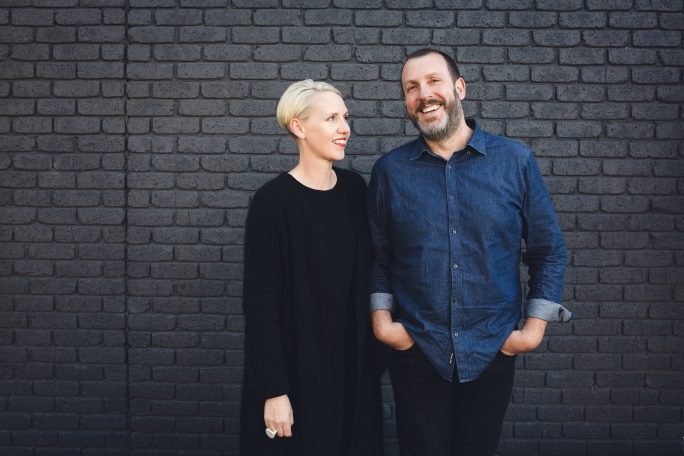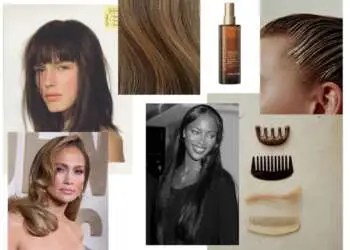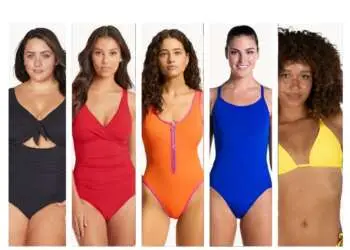In a world that tends to gush over black, beige and minimalism, Australian fashion label ELK stands out for its bold prints and dramatic use of colour. The brand has recently announced it’s joined 1% For the Planet – a global network whose members contribute one percent of their sales and revenue to environmental causes through the network’s partner non-profits.
Other exciting eco-conscious moves the brand is making include a shift to more plant-derived and recycled leather along with its ongoing work to trace all its materials back to farm. So, it was a good time to catch up with ELK co-founder and creative director Marnie Goding and ask her more about the brand’s sustainability journey.
Tell us about ELK, what defines the label?
“We are a Melbourne based fashion label in our 17th year. We started the business at a time when there was huge opportunity for handmade, contemporary accessories – there wasn’t anyone else really competing in the market. We launched selling our designs through both wholesale and retail channels and have since evolved the collection into a full fashion offering.
“We have three retail stores and a broad, predominantly female demographic with customers aged from 25 to 75 and we offer sizes 6 to 20. We are proud to cater for such a beautiful, diverse audience. Our customers appreciate quality and unique design and connect with us as a sustainably focused, family-owned label. We are known for our use of colour and print – and for our commitment to operating with transparency.
“We have an extensive network of independent wholesale stockists right across the globe from here in Australia to Japan, Canada, the US, New Zealand and the UK. We are not trend driven and instead focus on contemporary design, quality, ethical production, use of considered materials and to working with responsible producers,” said Goding.

What inspires you?

“The living environment and art are constant inspirations. We love colour and print and are moved by the incredible palette mother nature offers. We produce most of our prints in-house but also collaborate with artists around the world to create bold and exciting textile designs.
“From a business sense we have a collective passion to always do better, go further and be curious. I have a restlessness that pushes us and our teams towards continual improvement. We are inspired by the broad changes we see in our industry as we move toward a more circular fashion economy, along with the innovation and technology that is driving new ideas, and new ways to reduce our environmental impact.”
I love the bold colours of the label. Do you have any styling tips?
“We love mixing and matching colour and pattern but that’s not something that everyone is comfortable with – head to toe print is a commitment! It is important when choosing a bold colour or print to choose something that will suit your colour tone and you will feel comfortable wearing so it doesn’t get relegated to the back of your closet. The rules we subscribe to are – to colour block using similar tones and hues and to use accessories to create contrast and interest. When wearing print, to balance the outfit with complimentary accessories or use neutral options to ground the look. The most important thing is to have fun, don’t be scared of layering and to always add accessories…. the more the better!”

Great tips! What are some of your favourite pieces throughout the years?
“I still have many pieces in my wardrobe that after many years I pull out each week. I love our basic items that I can rely on for comfort and can layer with bright colours or prints. Our French linen program is extensive but my stand out favourite is our heavier weight, linen Dahme pants. Also our classic Purno hightop sneakers, our large Edda bag for work each day and then stacks of our bangles in resin or timber are all on high rotation.”
When did sustainability become important to you and how is this expressed in the business?
“Elk was founded on clear, ethical principles and sustainability has always been a key element. Our greatest environmental impact is through the products we make but we also have impact through running our operations.
“We became more acutely aware of the impact we were having around eight years ago when during a factory visit we realised there were issues around waste management with one of our jewellery makers. This trip and our experience kick started a deep dive into all of our makers, materials and production processes right through our supply chain. There is a lot our producers are doing right but more importantly our research has shown us what needs to stop, change or be improved and they are all on this journey with us.
“We are focused on reducing the effects our business has on the environment through the careful selection and research into materials, production processes, freight, packaging and facilities management. We record and report on this work through an annual transparency report which is released in April each year. The report is a summary of our progress and serves as a roadmap for the future.”
What are some of the challenges of running a fashion label with a sustainability ethos?
“The challenges are many and varied. Our operation in Australia has seen many improvements and changes which have been relatively easy as we are on the ground and can action initiatives quickly. Because we almost exclusively produce offshore though, we have to rely on many different ways to measure, assess and report on our impact and on our projects.
“We have a dedicated Head of Ethics and Sustainability; Erika Martin, who heads up the work we are doing. It is an enormous task to liaise with suppliers, to ascertain how, where and with whom they work, to keep a current audit trail and follow non compliances throughout the supply chain, to consider and understand social, environmental and governmental policy….and the list goes on.
“Erika and her department is central to us achieving our 2025 goals. It is difficult in limited words to define how challenging it is producing in so many countries, with such a broad scope of work in an industry that is also rapidly changing. Government and policy changes, advancements in research and innovation, external environmental pressures and so many other elements see us constantly trying to adapt to make the best decisions at the time.”

“Much of our commitment to ensuring we operate ethically and transparently is to undertake in person visits to each of our makers. For now and in the short term this is not possible. We have partnered with organisations like Sedex and others to help us maintain as much visibility into these factories as possible. This has been one of the biggest challenges throughout the last two years as staying connected to our makers is vital.
“The reality is that our business runs on the sale of new products. So, our mantra is to offer a better alternative to conventional. We don’t use hard line sales tactics and instead encourage our customers to buy what they need or really love and make sure it is made well and from more sustainable materials. Simply put – if you buy a pair of our denim jeans that we make in Vietnam with Saitex you are making a better choice than buying a pair from another brand that makes their denim in more conventional ways. We are also working on our Elk ReWear initiative and a take back program in an effort to improve our circular practices.
“Overall we are accountable to ourselves, to the people who make our products from the factories to the farmers and then to our customers. We have a list a mile long and we know what we need to do, yet some things are taking a long time. It is particularly challenging at the moment with all of the interruptions; we just want to get on with the job. The wonderful thing is that our customers are incredible. They understand what we are working on because we make sure we tell them. Positive change whether fast or slow is still positive.”
A lot of brands are scared to highlight what they are doing in the area of sustainability for fear of getting it wrong or not doing enough. What do you think about this?
“We were one of those businesses and prior to releasing our first transparency report in 2019 the whole team were terrified because the report spoke not only to the positive things we were doing but also to the challenges we faced and high lit what we were not doing well. Anything that a business or brand can do to make positive change should be celebrated – it’s the businesses that are not doing anything that should be fearful.
“In our experience, our customers and peers were nothing but supportive because our communication was honest and thorough. We offer an ongoing long form report for those that want to dig deep into the detail and a snapshot for those that just want the sound bites. I think it’s an old-fashioned mindset to be fearful of being transparent. Customers assume if you say nothing about what you are doing to change or improve that you aren’t doing anything at all.
“I think what is more dangerous is brands that don’t say enough or make shallow and potentially misleading claims. Information should be backed up and verified or supported by third party accreditation, greenwashing should be avoided at all costs. After all for our industry and for our future, responsible business should be the norm. It can be celebrated, discussed and role modelled – genuine, effective change is what is needed, not used as a pure marketing or sales driver.”

How do you practice sustainability in your everyday life?
“We aim to live and work a conscious life always maintaining an awareness of the impact we have on the environment. We shop, consume and live to avoid the generation of waste. We buy only second hand if possible, repair when needed and buy the most sustainable option if we have to buy new. We eat mostly organic and seek out locally produced foods, we have reduced our meat consumption, avoid the use of single use plastics and we grow some of our own food including herbs and vegetables. I drive an electric car and our home and our workplaces are either solar powered or we buy renewable energy.”
What’s next for ELK?
“We see good growth for us with an awesome team and some great new tech and development opportunities in front of us. As a Melbourne based business, so many of our big projects were put on hold through covid and we feel like we lost at least a year of progress.
“Hopefully 2022 will be less interrupted and we will see a couple of new retail stores open, some big improvements for our online store, new ranges of course and then significant progress as we move towards achieving our 2025 ethical and environmental goals. We have a great business, and after a couple of tumultuous years we are looking forward to pushing on to recover and strengthen everything we do.
“Ultimately our goal is to be a key player in the Australian fashion market offering consumers product that connects the dots. We are working to make pieces that customers can be confident are made with quality, using materials that leave the smallest footprint and in ethical conditions. We will continue to do this transparently and hopefully we may influence others to think about the way we all live on planet earth striving always to live a more conscious existence.”
For more information about the ELK fashion label, visit here.
For more from The Carousel about sustainable fashion, visit here.















